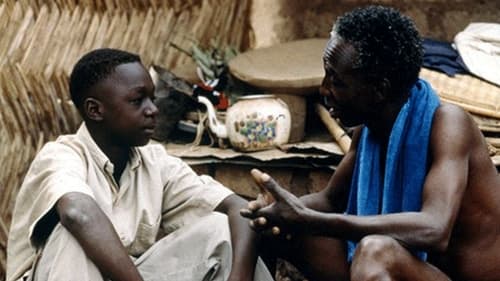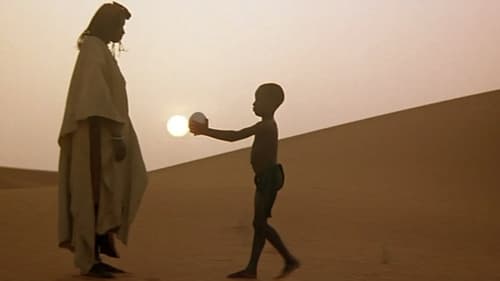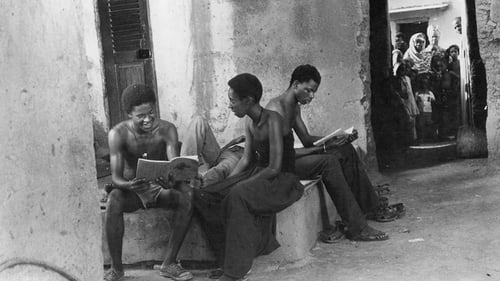
Karamo
BB works as a political cartoonist at a liberal newspaper, his more outrageous efforts duly appreciated but not necessarily published by his boss. He's in love with the boss’ lovely, talented computer-scientist daughter, Kesso. But his choice meets with stiff opposition from his strict Muslim father Karamako, who is the chief of his village as well as imam of Conakry, especially when Kesso becomes pregnant with BB’s child.

While teenagers John and Tom, who live in a refugee camp in Guinea Conakry, go from housebreaking to robbery in order to survive, Satou, similarly to many other destitute young women, turns to the streets. Things go from bad to worse and Tom - soon followed by John - gets stuck in a downward spiral of extreme violence. Will Mémé their grandmother and also a refugee, be able to save them?

Hamor
Inspired by the book of Genesis, this film tells the power struggle between two families: a clan of herders led by Jacob and another clan of hunters fronted by his brother Esau. Caught in the crossfire is their cousin, Hamor and his tribe of farmers.

Le père
Director Abdoulaye Ascofare's drama follows Zamiatou (Aminata Ousmane), a mother who struggles to support her family in the wake of her husband's unjust incarceration. Life is already difficult in the desolate desert of Mali in Africa, but when her husband returns from prison a mentally and physically reduced man, Zamiatou will do anything to keep her two sons and daughter alive.

Mambi
The movie shows the rise and fall of a cruel and despotic village chief Guimba, and his son Jangine in a fictional village in the Sahel of Mali.

Teacher
Beginning in South Africa under the apartheid regime, the film follows a young girl who flees the country after a violent confrontation with a local white landowner in which her father is killed. She settles in Abidjan, where, ten years later, she has become a university student. As part of her studies, she visits the Taureg tribe on the edge of the Sahara before at last returning to post-Apartheid South Africa.

Moussa, l'oncle
In Kouroussa, his native village, little Baba lives happily, between Madou, his father, a gifted mechanic, Kouda, his sweet mother, and his gang of pals. Kouroussa is a wonderful place where Baba learns about life. But like all little boys Baba grows and now he is old enough to continue his studies in Conakry. He must say farewell to his village and cross all Guinea to the capital city of Guinea to live with his uncle.

Fakoro
Life in the African country of Mali in the 1990s is vividly highlighted in this mild drama. In the story, a young forest ranger who sees that his work holds the key to the future of his country (through reforestation) is disgusted at the short-sighted, money-grubbing ways of his superiors. He has a much better relationship with local villagers than with his agency's bosses. As the movie opens, the villagers are preparing to hold a hunting ceremony but are not sure whether they will do it the old fashioned way, with a bonfire, or will obey a government decree that open fires are too dangerous. There is a lot of sexual teasing between the villagers, including some harmless horseplay. For instance, when a man whispers another woman's name in his sleep, his wife pours water into his ear in revenge.

Rouma Boll, le roi Peul
Юноша, обладающий магическими способностями, отправляется к своему дяде, чтобы попросить поддержки в борьбе с отцом-волшебником.

Le Gouverneur Sangaré
Принадлежащие к разным слоям общества двое малийских школьников бросают вызов традициям, существующим в их обществе испокон веков.

A young manager of a factory encounters a man walking along a road who says his family traditionally are servants to the manager's family. The manager offers him a job, and as he watches out for the other man's welfare, begins to see how the company mistreats its workers. The manager is challenged between his ethics and the pressure from others to protect his own interests as dire problems surface at the factory

A young mute woman is raped and becomes pregnant, with disastrous consequences within her family. The film also sketches the social/economic situation in urban Mali in the 1970s, particularly in relation to the treatment of women.










